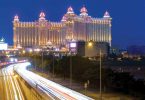This article first appeared in the Mar/Apr 2016 issue of WGM.
There are few greater authorities on all things Macau than Dr Rui Cunha. Born in India before studying law in Portugal and working as a solicitor and magistrate all around the world, Dr Cunha was invited to Macau in 1981 by Dr Stanley Ho and has been an important part of the landscape ever since. As STDM’s in-house lawyer, he has played a major role in developing the company and aiding its rapid expansion. But as liberalization of the gaming industry opened Macau up to the world, he also recognized the unique demands this would place on the local community which eventually led him to create the Rui Cunha Foundation. Having enjoyed an esteemed career that saw him awarded Commander of the Order of Merit by the President of Portugal in 2014, our CEO Andrew W Scott recently had the privilege of sitting down with Dr Cunha to discuss his incredible life.
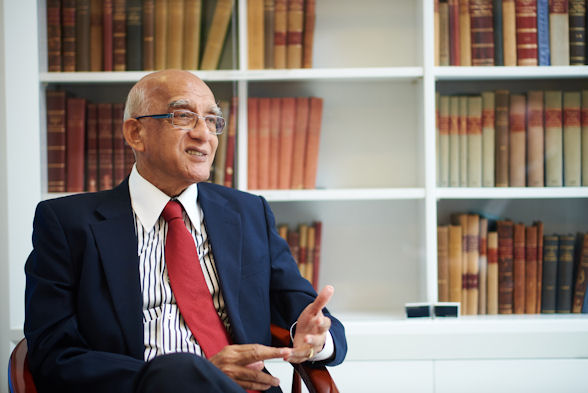
Andrew W Scott: It’s an honor to speak with you Dr Cunha and thank you for dedicating some time to sit down with WGM. Let’s start at the very beginning. Can you tell us about where you were born and your journey through your childhood and the early stages of your career?
Rui Cunha: I was born in Bombay but I spent my childhood and went to primary school in Daman (a union territory on India’s west coast and a former Portuguese colony). I went to Goa for secondary school between 1950 and 1957 and then in 1958 I left for Lisbon because Goa had no University. I intended to study law. My great-grandfather was a very well-known lawyer in Goa and my father was a solicitor in Daman so it was a family influence.
It was a difficult decision at the time because my mother was supporting us. I had two older sisters and one of them followed me to Lisbon. My mother sacrificed a lot to support us there and the government in Daman also gave me a scholarship.
That situation lasted in Lisbon until the end of 1961 when the relationship between Portugal and India was cut. I was in the third year of my degree in law but had no chance to receive any money from the family. At that time, something I liked to do in my spare time was take photos so I started doing a course in photography they were running at the University. From photos I jumped to the production of movies which was very useful because I started working as an assistant to a TV director in Portugal. That gave me a lot of time to study.
We were working mostly at night so it left me my mornings free to go to school. I worked at the TV station from 1962 to 1966 and had finished my studies at the end of 1965 which was when I started looking for a career.
AWS: Did you ever consider a career in television or movies instead?
RC: That was a big decision I had to make. Because of the course in cinema and my experience in TV, I was chosen as one of six students to continue their studies in movie production in Paris at the Institute of Cinema. But I knew if I went to Paris I would not come back to finish my last year of studying law. Movie making didn’t seem to provide that stability in life either. It was hard for me because it was something I was putting my soul into and I worked in a few movies. The fire was inside but I resisted and decided to choose something that would give me more security in the future.
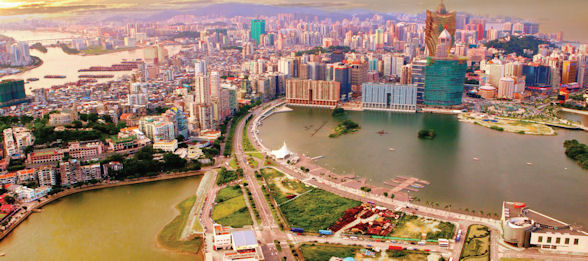
So I finished my study and chose to be a trainee in a criminal court in Lisbon. I had the option to pursue a career as a lawyer or as a magistrate. We would start at the prosecution office and do six years as a prosecutor, then there was a test for becoming a judge and if you qualified this was your career. So I chose that. I was appointed as the prosecutor in a small town about 70km from Lisbon. That was my first appointment, the first step of my career.
Like everything in my life, when I do something I do it 100 percent seriously so I started with full dedication and worked one year as a prosecutor in Portugal. There was also the opportunity at the time for all candidates from Portugal to take a position in the colonies.
I’d already been in Portugal for six or seven years and my origin was a colony so I felt an intimate connection with this and chose to go to Mozambique in 1966. I worked in colonies for 10 years until 1975, firstly in Mozambique for four years and then in Timor. That was a hard change because my sister and nephews were in Mozambique with me but Timor was a very isolated place. There were also no plane connections at that time so I had to go by boat.
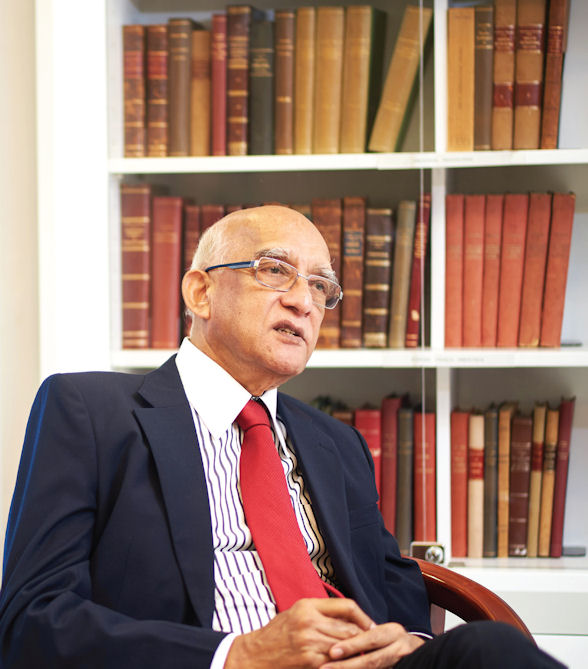
It took one month and one week to go from Mozambique to Timor. The first part took one month to go to Hong Kong by boat and that was the first time I visited Macau. This was in 1969.
The boat stopped for three days in Hong Kong so I had the chance for one day to go to Macau. But I remember in the afternoon, the last ferry was leaving at 17:00 and I forgot to buy the ticket previously. I went to the pier and there were no tickets! I was in a panic because the boat from Hong Kong was leaving that night and I couldn’t reach it! But I think that all through my life God has helped me in difficult situations. He put his hand down and helped the baby!
So I made it back to Hong Kong and stayed in Timor for two years.
There wasn’t a lot to do in Timor besides working so I had the chance to become more and more dedicated to work. I set up the current prison system there and it was very gratifying when I returned 30 years later to have people tell me they still looked for me and hadn’t forgotten me. Timor taught me to look after people the way you would look after yourself – probably because it was a very poor place.
![[b]Dr Cunha spent his childhood in Daman, India[/b]](http://www.wgm8.com/wp-content/uploads/2016/02/images_wgm_1040_road-scholar-4.jpg)
After Timor I was qualified to choose a place in another colony so I became a judge in the High Court south of Angola. At that time the responsibility of being a judge was feeling quite heavy. I had come to understand that money should not be an objective in life. It is just a tool to live a better life. In Macau there is a different concept where people think they have to be the richest or have the biggest bank account or best Bentley. I like Bentleys also but it is not an objective for me.
AWS: You’ve had an incredible life travelling the world but ended up settling in Macau. How did you end up here?
RC: That’s a funny story. I had a good friend in Timor, a Chinese businessman, and when I went to Angola he was also doing some investing there. In 1975 when I returned to Portugal and was a judge in Lisbon, he would pass through and we met up many times. He liked Portuguese food so he would always call me when he was passing through and say, “Let’s go and have some Roasted Chicken” at this restaurant he liked. So we met up a lot. At the same time I felt that being a magistrate in Portugal was not the same as being a magistrate in the colonies in regards to our duties. It was a different environment and some things didn’t please me too much. I was conscious that I had a wife and two kids too. I was still young but I felt I needed to look after the interests of my family and I couldn’t imagine doing that in Portugal. One day my friend said to me, “I feel that you are not too happy here, why don’t you try Macau? There are only a few lawyers there. Why don’t you try it? If you like it you can stay.”
I was reluctant to go but we had our lunch and he returned to Hong Kong, then two days later in the middle of the night the phone rang and it was him. He said, “My friend needs a lawyer to set up some legal departments. I mentioned you and he was very impressed and wants you to come.” He passed over the telephone and that was the first time I spoke to Dr Stanley Ho.
![[b]The University of Lisbon in Portugal[/b]](http://www.wgm8.com/wp-content/uploads/2016/02/images_wgm_1040_road-scholar-5.jpg)
He proposed that I come and work for STDM and help develop the company. This was in May 1981. I told him I would only make my decision after I visited Macau again to see if the conditions were suitable for my kids with their studies and our house. He said, “No problem, I will send you the ticket and you can come whenever it is convenient for you.” So in June 1981 I came to Macau and met Dr Ho.
After talking to my family I decided to come for one year, because I didn’t want to commit myself. But I came to Macau and I liked it. Professionally I felt it was a good challenge and the experience I brought was useful. There were only a few lawyers and most of them were quite old. At the end of the first year I said, “Let’s try one more year.”
Dr Ho wanted me to continue. I had created the legal department they didn’t have before and Dr Ho told me he didn’t feel too comfortable without an in-house lawyer – someone he knew was looking after the company’s interests and had the same motives.
So I accepted the challenge and the relationship lasted for 29 years while always keeping the necessary distance. We were close and we were apart. He had one life and his own business that I never entered and never tried. We were very professional in dealing with all matters and one of his qualities was that he always knew to respect the people he was working with.
In 29 years it was always a very good experience working with him because he was a person with vision. I understood that and I followed in many, many matters. After I joined STDM it grew from this simple small gaming company to go into many fields – property, investing – and be the engine of the colony here in Macau.
AWS: What do you remember of Macau at that time?
RC: When I arrived in Macau, the next building from Hotel Lisboa, Hotel President, was the last building in that area. It was all farms until the outer harbor. The outer harbor building was also an example where Dr Ho had the vision to understand the importance of connecting with Hong Kong and we negotiated with the government to build the existing terminal. It was quite controversial at the time. He also didn’t hesitate to give support to build the airport. The airport was a huge investment but Dr Ho was personally involved. He saw that if Macau didn’t take further steps it would never have any future. It would be a small village. Although gambling was a cash cow and STDM the strongest entity here besides the government, he understood that once China started opening up, Macau’s rule would be completely different. So he built it step by step until Macau is what it is today.
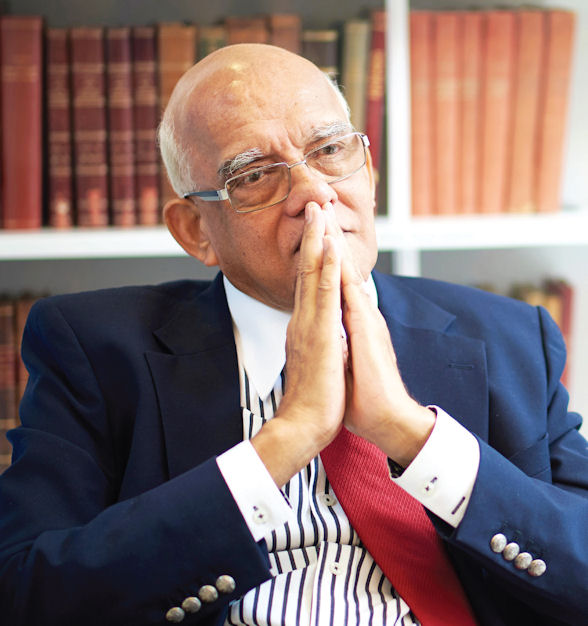
AWS: Some people seem to believe that Dr Ho was simply in the right place at the right time in Macau but from what you’re saying none of it could have happened without him having a certain kind of vision too?
RC: I think he understood because he is also Chinese. He realised that the whole geopolitical situation in this area was on the move. In 1982 when Margaret Thatcher (the then British Prime Minister) visited Hong Kong and started preparing for the handover, Dr Ho understood a new life was coming. New challenges. He prepared for it. I should not talk too much about him because of the respect and appreciation I have for him. He is someone who has done many things for Macau and set out the ingredients necessary for what happened later. Sometimes he is not as appreciated as he should be but his role was important for Macau.
AWS: Where do you live these days?
RC: I still have the same house I lived in when I came to Macau. I was there for 25 years in the same building. Now I’m living in another house as well but I still have that first house. We wanted a house in Taipa and Coloane for when we needed some fresh air and greenery. I remember there used to be a toll at the end of the bridge and it would cost five patacas to cross. There was only one main road crossing Taipa and the rest was all green. I remember the first thing to spoil the greenery of Taipa was the monument.
AWS: Was there a connection from Taipa to Coloane back then?
RC: Yes there was one connection in what is now the central part where you see those animals set up. That was exactly the location of the road and there was water on each side. I still remember one typhoon in Macau called Becky – the water was crossing that connection and it had to be repaired.
But in 1969 when I passed through Macau, the connections were made via a small boat that would stop in Coloane and Taipa but had to be careful of the tides. I remember in 1971, there were only two or three cars in Taipa and Coloane. A friend of a friend had one of them, a Jeep, and he was kind enough to give us a ride when we went to see Hac Sa Beach and Cheoc Van Beach. It was nothing like we see now though, it was just rock.
So Macau had a very fast development. From the 1970s and 1980s it started to grow quite fast. The first stage was pushed by STDM, then others started pushing to put it on the world stage.
AWS: Let’s fast forward to the liberalization of Macau’s gaming industry in 2001 which opened the door for the incredible transformation we’ve seen here since. How did the people of Macau react at the time?
RC: I can say that the turn of the century and the opening was a little bit of a punch in the stomach for Macau society. It brought a lot of good things but also involved a lot of risks. In some ways the reason I decided to create the Rui Cunha Foundation comes from what I was seeing and the risks. Things are coming up now that I was forecasting years ago.
AWS: What were those risks?
RC: The risks were what the changes to society would be. When change happens too fast it must generate some problems because newcomers don’t adapt, the locals don’t adapt and there are all these people running too fast. Suddenly, what happens is the whole job market is changed and that is at the core of the problems that come socially. Up until then you would look for a job and it would become your career.
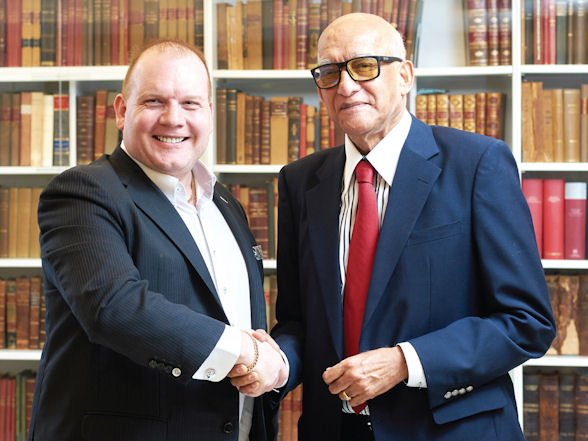
But the new job opportunities in Macau provided an easy way to move up and turned the whole job market upside down. Before, MOP$8,000 or MOP$9,000 was a good salary but suddenly that jumped to MOP$15,000 or MOP$16,000. That was the first shake on the market and not everyone was mentally prepared for such a change. People would jump companies saying, “You give me MOP$1,000 more and I’ll change for you.”
This is always bad because you don’t create a real sense of the duties and the responsibilities of working for someone. The objectives change. Money became an obsession and made things difficult here in Macau. It was too fast. What happened in five years should have taken 20.
AWS: What are your thoughts on education in Macau and are there enough people improving their knowledge and skills to keep up with the demand for skilled managers and workers?
RC: Well you need local people to follow and strive to reach a standard but not many of the students at the University are Macau residents. Maybe we forget that Macau had 400,000 people in 2001. Now we have over 600,000 but we don’t have the workforce to fill all of the new positions. We still have problems to come. There are locals claiming they don’t want non-residents to take their jobs. I feel this is unfair. If you allow development but don’t provide them skilled people, well the Macau people can’t fill those positions so it’s not fair. You need people with the skills that Macau people don’t have. This is the reality. You cannot press a button and get the skills overnight. It takes time.
AWS: How do we change it?
RC: On education I have one opinion but I don’t know how many people share it with me. I feel the whole education system in Macau needs some change. Starting from primary school, we see it is very much based on memory. If you have to memorize from the beginning 4,000 characters to learn how to write, that’s a lot. We need less than 30 to write anything so they very much base it on memories. Memories are excellent if you need to reproduce something – they will do that perfectly – but life isn’t just that. The system needs to push your brain. You need to exercise your brain.
So I feel that the whole education system needs to be changed and turned more towards encouraging young people to start thinking more than just reproducing. The government is making an effort to send people out on scholarships to America and Canada and Hong Kong and Portugal but if we had the education system here we wouldn’t need to.
AWS: Have you seen Macau change in other ways?
RC: Definitely there are some changes. I remember when I arrived, this was a very small society and after five or six months of being here and going out we had people greeting us because they got to know us. Macau hasn’t lost that completely yet and that is where it differs from Hong Kong, but it has been lost a little bit because of the competition that exists in all fields. It’s not only the six (casino) competitors but other things like restaurants challenging each other. We will be able to measure and find out what the changes have really been in the next three to five years because the slowdown will bring up all the big points.
AWS: Speaking of the downturn in Macau’s gaming economy, what are your thoughts on the current climate and how long do you see it lasting?
RC: I’m not a fortune teller but I feel we will have this downturn for a couple more years. It was too fast as well. In one year it was a complete squeeze but this will continue and will start affecting many things – business, real estate, investment. A recovery to go back to the times of the past decade, I don’t feel there is any chance we will come to that. Why? Because that was supported by Chinese money and that will never again be allowed to repeat. It won’t be the same.
China is also changing its mentality and feeling the value of money due to the problems they are facing now. They know they have to look after the future and that will affect the money coming to Macau to be spent. I think Macau will find a way to overcome the downturn and we will adapt. At the moment they are comparing year to year, month to month and saying it is down 36 or 37 percent but there will come a time when it doesn’t go down so much. The slowdown was definitely very fast but Macau will adapt. It adapted to the good times, it will adapt to the worst.
AWS: Let’s talk about the Rui Cunha Foundation. How did it come about?
RC: I wanted Macau to have a research center that was physically in Macau. Up until 1999, laws would be prepared in Portugal and extended to Macau. The moment we cut ties with Portugal we became orphans because our legal system had no connection with anything nearby. It was different from Hong Kong so we couldn’t just pick up things from there to insert into our legal system. The same with China.
![[b]Dr Cunha greets Alexis Tam, Macau's Secretary for Social Affairs and Culture, at the Rui Cunha Foundation[/b]](http://www.wgm8.com/wp-content/uploads/2016/02/images_wgm_1040_road-scholar-8.jpg)
So everything needed to be done locally with Macau people and Macau legislators and they didn’t realize what the handover really meant. It put the power in their hands to create the laws, to execute the laws and create the whole structure for Macau society to maintain peace and harmony. It was lucky though that China decided Macau should remain autonomous. If there was not this policy adopted by China the troubles in Macau would be much, much deeper. I know for sure the whole legal system would be changed.
With this definition it was still possible to preserve Macau but without a master or enough people here studying and dedicated to the law, it was a risk and the temptation soon became money. With due respect to the legislators, many of them still don’t have enough experience to produce laws to benefit society. That ‘s why I decided to create a research centre. It is a place for people to reflect, study and to spread thoughts around. Most people don’t know about laws and how to apply them to Macau.
AWS: So the research center was basically a place for people to develop the legal framework of Macau?
RC: I wanted to get people talking and debating. I don’t believe public consultation is the most useful way to do it. In my point of view, consultation should be a different model to just putting the power on the street and hearing everyone. There are too many different points of view! So we created this but then I thought if I created a center that depended on me personally … I’m already old enough. If the center has no autonomous support how will it continue? I wanted to create a Foundation that would support the activities of the research center so that with me or without me, it has the legs to walk alone.
At that time I told myself, if I create the Foundation there are other problems in Macau I might be able to get a handle on. Macau has no art market and no music market because of our dimension. It needed a boost and that is what the Foundation is trying to do. We’re not looking for profit. All this is free for starters. I don’t want very famous artists with exhibitions here. What I want is to give a chance to those who want to start, to make it. Music is the same – to give them the confidence and for people not to think they have to live on material things or have making money as an objective. Why not focus on things that are not directly for making money? Why not entertain your soul? Why not entertain your mind? Why not give pleasure to others? I can’t say whether the Foundation is a success but we have given recognition to the public and the people around. We are trying to pinch people.
AWS: Can you give us an example of someone the Rui Cunha Foundation has helped?
RC: We have had many of them. We had one artist who started a gallery and did an exhibition. He received an invitation to go to Paris. We supported him and pushed him. Today he is much more confident. He has had an invitation from the Macau Museum of Art. He has received an invitation from Hong Kong. Now he feels he is an artist. Although he continues to live as a teacher at his school, now he has the confidence that his art is being recognized by people.
AWS: What are your thoughts on the current push from the Chinese and Macau governments for Macau’s casinos to increase diversification and steer the focus away from gaming?
RC: It will be a very slow process. Industry is dead and will not come back again while there are other countries nearby where labor costs are lower, where they have access to raw materials, better conditions and more space. Macau cannot compete so industry is something to put aside. What the government is pushing for with the creative and cultural industries I think there is scope for doing but it will never replace the dependence on gaming. Gaming revenues will not be replaced. Maybe in the long run we can try and boost cultural centres and try to create an image of Macau based on historical heritage but it will never replace the gaming industry. It’s impossible.
AWS: Finally Dr Cunha, you worked alongside Dr Ho for many years. Our readers would be most upset with me if I didn’t ask you whether you still see him often and how is he going?
RC: I don’t see him that much. Naturally when you work with someone for 29 years it creates a relationship but as I said we always separated our professional and outside lives. Professionally we were close but his private life I never entered. I kept my distance. Time to time when there is a chance I like to see him but I’m not going to go to him with problems like before. When he had a problem or I had a problem we would talk more because mutually we would need to find solutions to matters relating to the business, but now that he is not following that closely there is no need to go and ask what he feels on this and that. I don’t like to disturb the peace he needs and deserves. I hope people respect his privacy and his image for what he has done for Macau.
![[b]The working life of Dr Rui Cunha[/b]](http://www.wgm8.com/wp-content/uploads/2016/02/images_wgm_1040_road-scholar-9.jpg)
AWS: That’s a great answer, Dr Cunha. On behalf of the readers of WGM I’d like to thank you very much for giving us the gift of so much of your time for this extensive interview. Congratulations on such an interesting and varied professional life to date. May there be many more years to come.
RC: You’re most welcome, Andrew.




